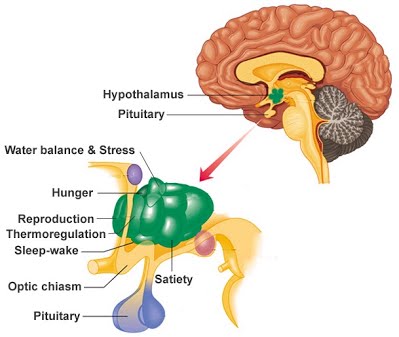Hypothalamus
What is the Hypothalamus?
Anterior pituitary
Posterior pituitary
What is the Hypothalamus?
In the human brain the hypothalamus is an area the size of an almond located above the pituitary gland, and acts as a master-regulator in the endocrine system. The hypothalamus acts as a link between the nervous and endocrine systems by being connected neurally to the brainstem, amygdala and septum, and synthesising hormones together with the pituitary gland to regulate many body processes (homeostasis, hunger, circadian rhythm, reproduction, defence, etc.).
Therefore, the signals given by different systems including the heart, stomach and reproductive tract, as well as other forms of stimuli e.g. blood-borne molecules, stress, steroids, olfaction, are processed via the hypothalamus and contribute to the way many hormones are secreted. The hypothalamus is split into multiple regions called nuclei that govern different functions.

